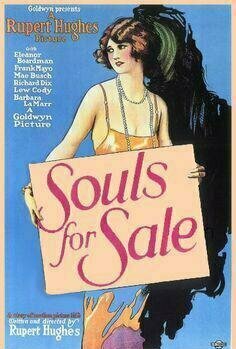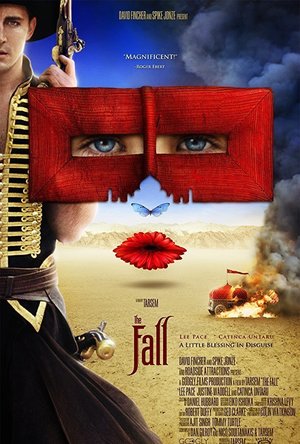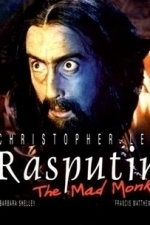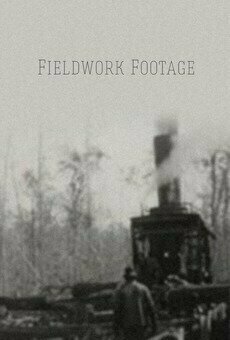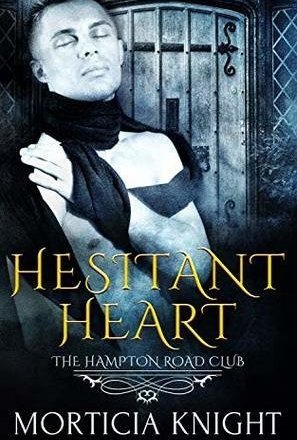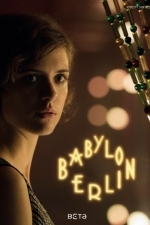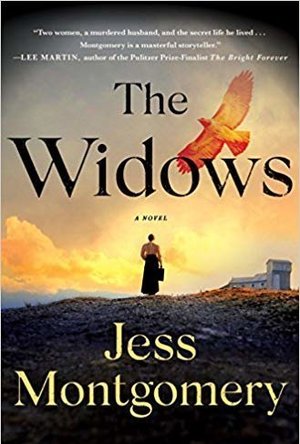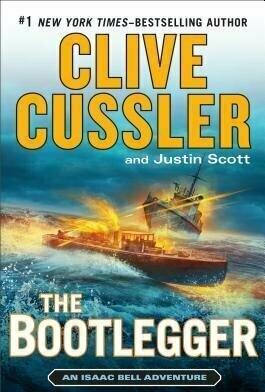Search
Search results
MaryAnn (14 KP) rated A Sparkle of Silver (Georgia Coast Romance #1) in Books
Mar 5, 2019
Millie Sullivan plays a 1920s-era guest during tours of a palatial estate on the shore of St. Simons Island, Georgia, where her great-grandmother was a real guest ninety years ago. When Millie learns of a lost diary that may contain the location of a hidden treasure on the estate and reveal the identity of her great-grandfather, she sets out to find the truth of her heritage--and the fortune she desperately needs. But it won't be easy.
When security guard Ben Thornton discovers her snooping in the estate's private library, he threatens to have her fired. Still, her story seems too ludicrous to be fiction, and her offer to split the treasure is too tempting to pass up.
Get ready for a romantic escapade through dark halls and dusty corners that will have you holding your breath and sighing with delight.
"A mystery, a treasure hunt, and a split-time romance--all set within a beautiful chateau.
My Thoughts: This is a wonderful romance mystery that keeps the readers' attention from the beginning. You can't help but love Millie, who is taking care of her grandmother diagnosed with dementia. When Milie has to find another home for her grandmother, with little money to do it with, her grandmother tells her of a journal of her great grandmother's that has a treasure map. Who doesn't like a good treasure hunt? And so begins our story of intrigue and romance.
This is a story of a lost romance and a new romance brought together by a unique situation. I believe that readers will enjoy this story as much as I did. It's not only about mystery and love, in this story we find two people trying their best to do right. Millie taking care of her grandmother and Ben trying to right his mother's wrong.
When security guard Ben Thornton discovers her snooping in the estate's private library, he threatens to have her fired. Still, her story seems too ludicrous to be fiction, and her offer to split the treasure is too tempting to pass up.
Get ready for a romantic escapade through dark halls and dusty corners that will have you holding your breath and sighing with delight.
"A mystery, a treasure hunt, and a split-time romance--all set within a beautiful chateau.
My Thoughts: This is a wonderful romance mystery that keeps the readers' attention from the beginning. You can't help but love Millie, who is taking care of her grandmother diagnosed with dementia. When Milie has to find another home for her grandmother, with little money to do it with, her grandmother tells her of a journal of her great grandmother's that has a treasure map. Who doesn't like a good treasure hunt? And so begins our story of intrigue and romance.
This is a story of a lost romance and a new romance brought together by a unique situation. I believe that readers will enjoy this story as much as I did. It's not only about mystery and love, in this story we find two people trying their best to do right. Millie taking care of her grandmother and Ben trying to right his mother's wrong.
Karina Longworth recommended Souls For Sale (1923) in Movies (curated)
BookwormMama14 (18 KP) rated The Lost Girl of Astor Street in Books
Jan 2, 2019
Oh.My.Goodness! I don't even know where to start with this one. First of all, I am not overly attracted to books that are suspenseful and cause me to jump out of my skin when my REFRIGERATOR makes noises. However, Rachel McMillan keeps talking about this book, and I decided that I just had to read it! THAT being said, The Lost Girl of Astor Street is a must read!
This book is written in first person, but it is nothing like other books with this point of view. Most of the time when I read a book written as first person, I feel like I am simply inside the character's head, getting a front row seat to the way they think and the way they process information that comes their way. With The Lost Girl of Astor Street, Stephanie Morrill takes the first person voice to a whole new level. A level where I felt as though I became Piper Sail. I was processing the way Piper was processing, her thoughts were my thoughts...This added such a deep level of intimacy with the character that I feel like I know Piper like I know myself.
Set in 1920s Chicago, you will be swept into the Jazz Age and will be tempted to dance the night away with Piper and a certain Italian detective. Having grown up in what Piper Sail thought was a safe neighborhood, she soon comes to realize that nothing is as it appears. Has she placed her trust in the wrong people? Will she ever discover what has happened to Lydia? And will the unlikeliest of people, become her greatest champion? Follow "Detective" Sail through the underbelly of Chicago. Uproot lies, reveal truth, and fight for justice for those who can not fight for themselves.
I borrowed The Lost Girl of Astor Street from my local library. I was not required to write a review. All opinions expressed are mine alone.ull review to come.
This book is written in first person, but it is nothing like other books with this point of view. Most of the time when I read a book written as first person, I feel like I am simply inside the character's head, getting a front row seat to the way they think and the way they process information that comes their way. With The Lost Girl of Astor Street, Stephanie Morrill takes the first person voice to a whole new level. A level where I felt as though I became Piper Sail. I was processing the way Piper was processing, her thoughts were my thoughts...This added such a deep level of intimacy with the character that I feel like I know Piper like I know myself.
Set in 1920s Chicago, you will be swept into the Jazz Age and will be tempted to dance the night away with Piper and a certain Italian detective. Having grown up in what Piper Sail thought was a safe neighborhood, she soon comes to realize that nothing is as it appears. Has she placed her trust in the wrong people? Will she ever discover what has happened to Lydia? And will the unlikeliest of people, become her greatest champion? Follow "Detective" Sail through the underbelly of Chicago. Uproot lies, reveal truth, and fight for justice for those who can not fight for themselves.
I borrowed The Lost Girl of Astor Street from my local library. I was not required to write a review. All opinions expressed are mine alone.ull review to come.
TacoDave (3841 KP) rated The Fall (2006) in Movies
Aug 8, 2019 (Updated Aug 8, 2019)
Acting (2 more)
Visuals - so amazing!
Story
Unlike any movie you have seen before
Contains spoilers, click to show
I can't really write a review of "The Fall" without spoilers, but this is the kind of movie where spoilers don't necessarily matter. What makes "The Fall" so amazing is much more about the visuals, the mood, and the direction.
Lee Pace plays a Hollywood stuntman in 1920s Los Angeles who was recently injured. He is stuck in bed in a hospital, filled with depression about the current state of his life.
As he lays in bed one day, a young girl with a broken arm enters the room and begins talking to him. They become fast friends, and he begins telling her a fantastical story about five heroes on a quest. The story is told in many sessions over several days, and each time the visual style and costumes and characters change slightly to match what the girl is imagining as she listens.
I won't spoil any more of the story, except to say this: the man has an ulterior motive for telling this particular story, and sometimes the lines between fantasy and reality, between a happy ending and a tragic one, are blurred.
The real star of this movie is the cinematography. The first time I saw it, I literally gasped at one particular scene transition. It was just perfect. The colors are bold, the settings are almost unreal - like nothing I've seen before (even though they exist in the real world) - and the costumes are amazing. I have literally never seen another movie, before or since, that looks like this one. It is stunning.
They say the director, Tarsem Singh, spent years scouting locations to meet his perfect vision. And it was totally worth it.
If you've never seen "The Fall," I wholeheartedly recommend it. I even own it on DVD, so if you want to borrow it, let me know.
Lee Pace plays a Hollywood stuntman in 1920s Los Angeles who was recently injured. He is stuck in bed in a hospital, filled with depression about the current state of his life.
As he lays in bed one day, a young girl with a broken arm enters the room and begins talking to him. They become fast friends, and he begins telling her a fantastical story about five heroes on a quest. The story is told in many sessions over several days, and each time the visual style and costumes and characters change slightly to match what the girl is imagining as she listens.
I won't spoil any more of the story, except to say this: the man has an ulterior motive for telling this particular story, and sometimes the lines between fantasy and reality, between a happy ending and a tragic one, are blurred.
The real star of this movie is the cinematography. The first time I saw it, I literally gasped at one particular scene transition. It was just perfect. The colors are bold, the settings are almost unreal - like nothing I've seen before (even though they exist in the real world) - and the costumes are amazing. I have literally never seen another movie, before or since, that looks like this one. It is stunning.
They say the director, Tarsem Singh, spent years scouting locations to meet his perfect vision. And it was totally worth it.
If you've never seen "The Fall," I wholeheartedly recommend it. I even own it on DVD, so if you want to borrow it, let me know.
Matthew Krueger (10051 KP) rated Rasputin, the Mad Monk (1966) in Movies
Nov 10, 2020
Mad Monk
Rasputin, The Mad Monk- is a entertaining horror film.
The story is largely fictionalized, although some of the events leading up to Rasputin's assassination are very loosely based on Prince Yusupov's account of the story. For legal reasons (Yusupov was still alive when the film was released), the character of Yusupov was replaced by Ivan (Matthews).
Christopher Lee play as Grigori Rasputin, the Russian peasant-mystic who gained great influence with the Tsars prior to the Russian Revolution.
The emphasis is on Rasputin's terrifying powers both to work magic and to seduce women.
Rasputin the Mad Monk was filmed back-to-back in 1965 with Dracula: Prince of Darkness, using the same sets at Hammer's Bray Studios. Lee, Matthews, Shelley and Farmer appeared in both films. In some markets, it was released on a double feature with The Reptile.
It was the third collaboration between Christopher Lee and Don Sharp, following The Devil Ship Pirates and The Face of Fu Manchu.
Lee later said, "The only way you can present him is the way he was historically described. He was a lecher and a drunk, and definitely had healing powers. So he was a saint and a sinner... There were very few good sides to him. Rasputin is one of the best things I’ve done. "
"I think it's the best thing Chris Lee's ever done," said Sharp in 1992. "Rasputin was supposed to have had this ability to hypnotise people.
The original ending had the lifeless Rasputin lying on the ice with his hands held up to his forehead in benediction. However, it was considered controversial for religious reasons, and was removed. Stills of the original ending still exist.
Sharp says the final fight scene between Francis Matthews and Christopher Lee was greatly cut by Tony Keys when Sharp had to leave the film during editing. Sharp had greatly enjoyed the experience of making his first two Hammer films - Kiss of the Vampire and Devil Ship Pirates - but not Rasputin.
As a child in the 1920s, Lee had actually met Rasputin's killer, Felix Yusupov. In later life Lee met Rasputin's daughter Maria.
Its a good horror film.
The story is largely fictionalized, although some of the events leading up to Rasputin's assassination are very loosely based on Prince Yusupov's account of the story. For legal reasons (Yusupov was still alive when the film was released), the character of Yusupov was replaced by Ivan (Matthews).
Christopher Lee play as Grigori Rasputin, the Russian peasant-mystic who gained great influence with the Tsars prior to the Russian Revolution.
The emphasis is on Rasputin's terrifying powers both to work magic and to seduce women.
Rasputin the Mad Monk was filmed back-to-back in 1965 with Dracula: Prince of Darkness, using the same sets at Hammer's Bray Studios. Lee, Matthews, Shelley and Farmer appeared in both films. In some markets, it was released on a double feature with The Reptile.
It was the third collaboration between Christopher Lee and Don Sharp, following The Devil Ship Pirates and The Face of Fu Manchu.
Lee later said, "The only way you can present him is the way he was historically described. He was a lecher and a drunk, and definitely had healing powers. So he was a saint and a sinner... There were very few good sides to him. Rasputin is one of the best things I’ve done. "
"I think it's the best thing Chris Lee's ever done," said Sharp in 1992. "Rasputin was supposed to have had this ability to hypnotise people.
The original ending had the lifeless Rasputin lying on the ice with his hands held up to his forehead in benediction. However, it was considered controversial for religious reasons, and was removed. Stills of the original ending still exist.
Sharp says the final fight scene between Francis Matthews and Christopher Lee was greatly cut by Tony Keys when Sharp had to leave the film during editing. Sharp had greatly enjoyed the experience of making his first two Hammer films - Kiss of the Vampire and Devil Ship Pirates - but not Rasputin.
As a child in the 1920s, Lee had actually met Rasputin's killer, Felix Yusupov. In later life Lee met Rasputin's daughter Maria.
Its a good horror film.
Jacqueline Stewart recommended Fieldwork Footage (1928) in Movies (curated)
Debbiereadsbook (1444 KP) rated Hesitant Heart (The Hampton Road Club #1) in Books
Nov 30, 2018
really loved this!
Independent reviewer for Archaeolibrarian, I was gifted my copy of this book.
Naive runaway Sam finds himself in a bathhouse as a job. Aaron frequents the bathhouse, and has noticed that Sam has noticed him. When Sam finds himself in a bit of a pickle, Aaron's baser instincts kick in, and his protectiveness goes into overdrive. Is Sam really the submissive Aaron has been waiting for? Will Sam run again, when he understands what Aaron wants??
Thank you, Ms Knight, for a thoroughly enjoyable historical BDSM book! It's been a long time since I read such a book, and I loved this one!
Sam is truly naive, totally, in all ways, a virgin. He knows he doesn't like girls, at all, and he knows Aaron makes him think and feel all kinds of things he never did before, but Sam also knows he NEEDS something else, something he isn't able to voice. When Aaron begins Sam's training as his submissive, the penny drops and Sam fully immerses himself into Aaron's world, one training session at a time.
I loved that Aaron, while fully on board with Sam's "lets have sex now" attitude, he waits. He waits til Sam is really ready for that step. And once they do take that step? Both men fall fast and hard.
I loved that I found it not overly explicit, for some weird reason! It goes into detail, about training and what Sam and Aaron are doing, and it's hot hot hot, but not explicit, if that makes any sense! Reading that bit back, it doesn't, for me, but I can't word it any different! But I needed to say that, and that I loved it.
The way Aaron and Saul, Aaron's friend, deal with Sam's father was well done, and in a way that no one was hurt, and Sam could walk free from the fear that his father represented.
It is set in the 1920s so comes with all the rules and regulations and words of the time. And I really enjoyed that!
Book one in the Hampton Road Club series. I do hope I get to read the rest of them!
Thank you, Ms Knight, for my copy!
5 stars
**same worded review will appear elsewhere**
Naive runaway Sam finds himself in a bathhouse as a job. Aaron frequents the bathhouse, and has noticed that Sam has noticed him. When Sam finds himself in a bit of a pickle, Aaron's baser instincts kick in, and his protectiveness goes into overdrive. Is Sam really the submissive Aaron has been waiting for? Will Sam run again, when he understands what Aaron wants??
Thank you, Ms Knight, for a thoroughly enjoyable historical BDSM book! It's been a long time since I read such a book, and I loved this one!
Sam is truly naive, totally, in all ways, a virgin. He knows he doesn't like girls, at all, and he knows Aaron makes him think and feel all kinds of things he never did before, but Sam also knows he NEEDS something else, something he isn't able to voice. When Aaron begins Sam's training as his submissive, the penny drops and Sam fully immerses himself into Aaron's world, one training session at a time.
I loved that Aaron, while fully on board with Sam's "lets have sex now" attitude, he waits. He waits til Sam is really ready for that step. And once they do take that step? Both men fall fast and hard.
I loved that I found it not overly explicit, for some weird reason! It goes into detail, about training and what Sam and Aaron are doing, and it's hot hot hot, but not explicit, if that makes any sense! Reading that bit back, it doesn't, for me, but I can't word it any different! But I needed to say that, and that I loved it.
The way Aaron and Saul, Aaron's friend, deal with Sam's father was well done, and in a way that no one was hurt, and Sam could walk free from the fear that his father represented.
It is set in the 1920s so comes with all the rules and regulations and words of the time. And I really enjoyed that!
Book one in the Hampton Road Club series. I do hope I get to read the rest of them!
Thank you, Ms Knight, for my copy!
5 stars
**same worded review will appear elsewhere**
Kelly (279 KP) rated Babylon Berlin in TV
Dec 16, 2018
Realistic portal of post Great War Berlin (1 more)
Not your usual boy meets girl story
Gritty, thrilling, engaging... need I go on?!
I have not found a series in some while that I was so attached, as Babylon Berlin. I confess, I watched the subtitles version, as my knowledge of German is pretty poor, but even this did not detach from the enjoyment of the series.
Babylon Berlin follows Gereon Rath, a detective struggling to deal with the aftermath of the Great War. He is supported at times in his cases by Charlotte Ritter, an administrator by day who supplements her families income through prostitution at night. I found myself routing for both characters throughout both series 1 and 2 of Babylon Berlin, even knowing Charlottes less than legal background, which is never hidden from the viewer. There was/ is a clear attraction between the two characters, which frustratingly is never fulfilled. Both characters are played by incredibly strong actors and are fully believable throughout.
What grasped my attention from the start was the clear portrayal of poverty that people lived in post war Berlin. Despite knowing some of the issues in living standards, I was drawn to the accuracy of the portrayal, many other stories set in this era would seek to romanticise the period at the end of the Weimar’s golden era, however the stark reality of degradation, sickness, depression and crime is always at the forefront of the story, and the political complexity of the time is covered well. This makes the the series very dark at times.
I was also surprised by the lack of Nazi input there is across season 1 and 2. We see lots about involvement of communists within the political system in the series, but there are only a small handful of references to the brown shirts - this is in stark contrast to what we are taught in schools, where the impression is given that by the late 1920s, Nazi involment is promenant in German society. This actually challenged my thinking on the subject, allowing me to realise that this is still a period, where, although the Nazis are known, they are not yet that popular.
I cannot wait until season 3 is released in order to find out what is next in store for Gereon and Charlotte. This truly is German production at its best.
Babylon Berlin follows Gereon Rath, a detective struggling to deal with the aftermath of the Great War. He is supported at times in his cases by Charlotte Ritter, an administrator by day who supplements her families income through prostitution at night. I found myself routing for both characters throughout both series 1 and 2 of Babylon Berlin, even knowing Charlottes less than legal background, which is never hidden from the viewer. There was/ is a clear attraction between the two characters, which frustratingly is never fulfilled. Both characters are played by incredibly strong actors and are fully believable throughout.
What grasped my attention from the start was the clear portrayal of poverty that people lived in post war Berlin. Despite knowing some of the issues in living standards, I was drawn to the accuracy of the portrayal, many other stories set in this era would seek to romanticise the period at the end of the Weimar’s golden era, however the stark reality of degradation, sickness, depression and crime is always at the forefront of the story, and the political complexity of the time is covered well. This makes the the series very dark at times.
I was also surprised by the lack of Nazi input there is across season 1 and 2. We see lots about involvement of communists within the political system in the series, but there are only a small handful of references to the brown shirts - this is in stark contrast to what we are taught in schools, where the impression is given that by the late 1920s, Nazi involment is promenant in German society. This actually challenged my thinking on the subject, allowing me to realise that this is still a period, where, although the Nazis are known, they are not yet that popular.
I cannot wait until season 3 is released in order to find out what is next in store for Gereon and Charlotte. This truly is German production at its best.
Sassy Brit (97 KP) rated The Widows in Books
Jun 5, 2019
The Widows by Jess Montgomery is inspired by the true story of Ohio’s first female sheriff. The plot delves into how two women fought greed and violence while overcoming the loss of a loved one.
The author noted, “This is a darker and deeper style of writing, much more than my other stories. For example, I examine the Pinkerton men and the violence they used. I read multiple books that talked about how these men would shoot up the striking camps. I put in this book quote by one of the Pinkerton men, ‘A real war, and then, rule of law won’t matter. Those miners who resist, why, we’ll put ‘em down like rabid dogs.’”
The protagonists Lily and Marvena are based on the real-life historical figures of Maude Collins, the first female sheriff in Ohio, and Mother Jones, the famous activist and labor organizer. Sheriff Daniel Ross, the husband of Lily is murdered and no one knows by whom. Those powerful in the town want to pin it on a coal miner, Marvena’s brother. She has something in common with Lily since she also lost her husband, but to a coal mining accident. Because the mine owners think she will be easy to control, Lily is appointed sheriff pending the next election. But having a mind of her own and a sense of justice she partners with Marvena to find the elusive murderer and Marvena’s missing daughter.
“I wrote both Lily and Marvena as tough. Lily is sensitive but is also a protector who wants to support her community. She keeps her emotions close to her heart. Marvena is fierce and persistent, but also has a tender streak. Although both women were wary of each other at first, they have a common goal to find out what happened. They end up with a strong friendship and recognize that each is balancing their own demons.”
Readers might be curious as to what is real and what is fiction. Montgomery commented, “In real life Collins had five children, and the person who killed her husband was known. I decided it would be interesting to have Lily take the sheriff position to find out who killed her husband. The similarity is that both women lost their husbands in the line of duty, both were appointed sheriff, and both were elected. The differences: Lily is eight years younger than Maude during that time period and she had only had two children.”
Historical facts are intertwined in this novel that also has strong female characters and an intriguing mystery. Readers get a glimpse into the 1920s-coal mining town in Appalachian Ohio as the author examines women’s rights, prohibition, and the life of a coal miner.
The author noted, “This is a darker and deeper style of writing, much more than my other stories. For example, I examine the Pinkerton men and the violence they used. I read multiple books that talked about how these men would shoot up the striking camps. I put in this book quote by one of the Pinkerton men, ‘A real war, and then, rule of law won’t matter. Those miners who resist, why, we’ll put ‘em down like rabid dogs.’”
The protagonists Lily and Marvena are based on the real-life historical figures of Maude Collins, the first female sheriff in Ohio, and Mother Jones, the famous activist and labor organizer. Sheriff Daniel Ross, the husband of Lily is murdered and no one knows by whom. Those powerful in the town want to pin it on a coal miner, Marvena’s brother. She has something in common with Lily since she also lost her husband, but to a coal mining accident. Because the mine owners think she will be easy to control, Lily is appointed sheriff pending the next election. But having a mind of her own and a sense of justice she partners with Marvena to find the elusive murderer and Marvena’s missing daughter.
“I wrote both Lily and Marvena as tough. Lily is sensitive but is also a protector who wants to support her community. She keeps her emotions close to her heart. Marvena is fierce and persistent, but also has a tender streak. Although both women were wary of each other at first, they have a common goal to find out what happened. They end up with a strong friendship and recognize that each is balancing their own demons.”
Readers might be curious as to what is real and what is fiction. Montgomery commented, “In real life Collins had five children, and the person who killed her husband was known. I decided it would be interesting to have Lily take the sheriff position to find out who killed her husband. The similarity is that both women lost their husbands in the line of duty, both were appointed sheriff, and both were elected. The differences: Lily is eight years younger than Maude during that time period and she had only had two children.”
Historical facts are intertwined in this novel that also has strong female characters and an intriguing mystery. Readers get a glimpse into the 1920s-coal mining town in Appalachian Ohio as the author examines women’s rights, prohibition, and the life of a coal miner.
Phil Leader (619 KP) rated The Bootlegger in Books
Nov 11, 2019
The Bootlegger is the latest in the series of stories about the detective Isaac Bell from Cussler and Bell collaborator Justin Scott.
Time has moved on for Bell; it is now the early 1920s prohibition is in force and the loss of lives during the First World War has hit the Van Dorn detective agency hard. Faced with routine lawbreaking to smuggle and sell alcohol on the East Coast, and with lucrative government contracts being lost to new federal agencies, the struggle against crime has never been harder. And when Bell has to take over the role of head of the agency he faces a tough job.
Meanwhile the recent war in Europe has spread communist revolutionaries across the world, trying to destablise governments and bring about the fall of capitalism, following the example of the Russian Revolution. One resourceful operative sees the possibilities of bootlegging to finance his activities against America, but his masters are not so keen on the idea of making vast amounts of money, regardless of the use it is to be put to. But his fatal mistake is attracting the attention of the Van Dorns, who still stick by their motto - We Never Give Up. Ever.
You pretty much get what you expect with this book, more of the same from the previous Isaac Bell books. Personally I enjoy them, the insight into American early 20th century history is always a fantastic backdrop. Scott's seeming obsession with train timetables is kept to a small section here regarding moving a cargo from one place to another. There is still the full selection of large engined transport - fast cars, fast planes and in this one fast boats. There are exciting chases and shootouts, plots and subplots, ruthless villains and gangsters aplenty and the real motives of the villain do not become clear until the final showdown.
It is a shame that we know the identity of the villain more or less right from the start rather than the Van Dorns having to piece the clues together to unmask him, as in the previous novels. Although in this case it would have been hard to explain the conflict between his communist aims and capitalist means of obtaining them, which is the real engine at the heart of the plot.
Unlike Columbo Bell is not sure who his man is for quite a way through the book until realisation dawns about who he must be looking for. But I felt that he suddenly went from not knowing the actual identity of the villain to seeing through all his subterfuge far too quickly. There didn't seem to be a Columbo 'Just one more thing' moment where the vital clue or clever insight threw everything wide open. But perhaps it was time for the story to cut to the chase - and it certainly does that to a satisfying (although possibly not great) finale.
Overall I enjoyed the book, the pace was good and the set pieces very well written. However it was never going to challenge the reader in any real way. But then it's an escapist adventure story, why should it?
Time has moved on for Bell; it is now the early 1920s prohibition is in force and the loss of lives during the First World War has hit the Van Dorn detective agency hard. Faced with routine lawbreaking to smuggle and sell alcohol on the East Coast, and with lucrative government contracts being lost to new federal agencies, the struggle against crime has never been harder. And when Bell has to take over the role of head of the agency he faces a tough job.
Meanwhile the recent war in Europe has spread communist revolutionaries across the world, trying to destablise governments and bring about the fall of capitalism, following the example of the Russian Revolution. One resourceful operative sees the possibilities of bootlegging to finance his activities against America, but his masters are not so keen on the idea of making vast amounts of money, regardless of the use it is to be put to. But his fatal mistake is attracting the attention of the Van Dorns, who still stick by their motto - We Never Give Up. Ever.
You pretty much get what you expect with this book, more of the same from the previous Isaac Bell books. Personally I enjoy them, the insight into American early 20th century history is always a fantastic backdrop. Scott's seeming obsession with train timetables is kept to a small section here regarding moving a cargo from one place to another. There is still the full selection of large engined transport - fast cars, fast planes and in this one fast boats. There are exciting chases and shootouts, plots and subplots, ruthless villains and gangsters aplenty and the real motives of the villain do not become clear until the final showdown.
It is a shame that we know the identity of the villain more or less right from the start rather than the Van Dorns having to piece the clues together to unmask him, as in the previous novels. Although in this case it would have been hard to explain the conflict between his communist aims and capitalist means of obtaining them, which is the real engine at the heart of the plot.
Unlike Columbo Bell is not sure who his man is for quite a way through the book until realisation dawns about who he must be looking for. But I felt that he suddenly went from not knowing the actual identity of the villain to seeing through all his subterfuge far too quickly. There didn't seem to be a Columbo 'Just one more thing' moment where the vital clue or clever insight threw everything wide open. But perhaps it was time for the story to cut to the chase - and it certainly does that to a satisfying (although possibly not great) finale.
Overall I enjoyed the book, the pace was good and the set pieces very well written. However it was never going to challenge the reader in any real way. But then it's an escapist adventure story, why should it?

